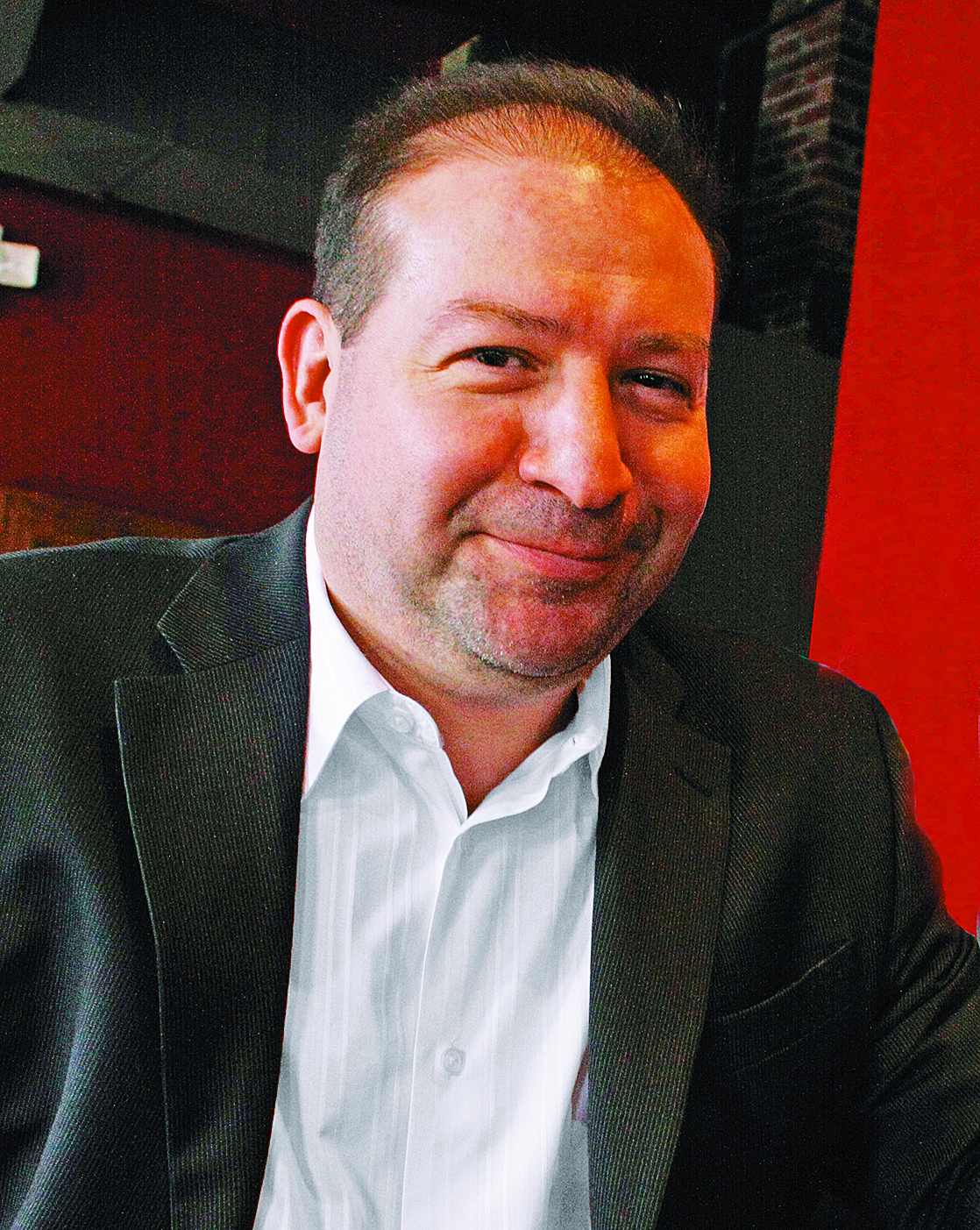A few short years ago, Domingo Martinez had the wolf at the door. His graphic-design clients were disappearing. The newspaper biz where he also worked—including at Seattle Weekly, where he was once a colleague—was contracting. He spent too much time holed up in his apartment, binge-watching cable TV, looking for love on the Internet, drinking, and writing random scraps of a future memoir about his hardscrabble youth in Brownsville, Texas. “I managed to scrape by. I borrowed money. I delivered pizzas,” he recalls of that dark period.
Since the 2012 publication of his bestselling The Boy Kings of Texas, life has taken a different turn. Martinez now has other problems—problems like making deadlines for HBO, problems like meetings and conference calls with Salma Hayek, problems like getting back on the road to promote his mostly Seattle-set second memoir, My Heart Is a Drunken Compass (Lyons Press, $26.95), to be published in November and launched next month at Hugo House.
“I’m very tired of Texas,” says Martinez during a recent morning chat at Caffe Ladro, near his Uptown apartment. Though he hadn’t lived there for some 20 years, “Texas sort of adopted me as one of its own writers.” He toured his first book extensively in Texas, and his second is being excerpted in Texas Monthly.
Martinez now admits to a letdown after Boy Kings, which was nominated for a National Book Award but fell short of the prize. “I was feeling disappointed with the whole process of publishing,” he says. “It was all about numbers and figures. It removed the illusion of success, and I was dealing with the stark reality of trying to survive as a writer.” There was no going back to graphic design, running a comically doomed print shop—as described in Drunken Compass—or even delivering pizza. Like a poker player, Martinez was all in.
Domingo Martinez’s book cover for My Heart is a Drunken Compass. Image Courtesy Rowman & Littlefield
Then, reading an online interview in German Vogue, where Hayek said that “I no longer feel Mexican,” he made his next big bet. Martinez could relate to her complaint, since in Boy Kings he flees Texas, stops speaking Spanish, and models himself on the late-’80s Anglo culture of bohemian authors, indie music, and movies. Seeing Hayek’s quote, he says, “Like a shark, I smelled blood in the water.” His agent passed Boy Kings to her people, and eventually “she asked to meet. It’s all about making your own luck.” He and Hayek clicked, and she took the project to HBO.
“On its own, the book was developing some clout of its own,” says Martinez of Boy Kings’ prospects in Hollywood. “[It] was making the rounds. It dealt with a part of the country that was unmined. But HBO has recognized that at some point in the future, 25 percent of the U.S. will identify as Hispanic.”
The experience of outlining Boy Kings into a possible miniseries is “a total trial by fire . . . completely beyond what I expected for my first book,” says Martinez. “Hayek became the chief champion and proponent” of the book; and when her people or HBO calls, he laughs, “I drop everything. I figure that’s gonna be my future. I’m certainly getting away from memoir after this.”
That’s partly because Martinez split the baby with his life story, and no third installment is planned. (He’s got a collection of short stories in the works.) Boy Kings ended with Martinez seemingly safely escaped to Seattle, where he’s now lived for over two decades. Drunken Compass loops back to Brownsville to tell the sad tale of his younger brother Derek’s alcohol-caused catastrophe. That medical crisis, which Martinez guiltily kept at arm’s length, is followed by another horrific accident in Seattle involving his troubled former fiancee—resulting in more hospital time, self-reproach, and life assessment.
Compared to the fitful, uncertain process of writing Boy Kings (itself part of the narrative in Drunken Compass), Martinez says, “I couldn’t stop writing. This [book] was like a cork.” He estimates it took him eight years to write the first and eight months for the second. “I was much more confident in the writing and in my language.” In part, he acknowledges, that’s because the success of Boy Kings meant “I was actually being taken seriously as a writer,” validating his second career. Also, “I wasn’t drinking” during that process; and a family legacy of alcohol abuse becomes especially evident in his very frank new book.
After “all this mental anguish and depression” involved in the writing of the two books, plumbing his family’s strengths and his own weaknesses, Martinez is enough the entrepreneur to understand how an uplifting outcome makes for a good memoir. “It is a happy end,” he says. “My parents are incredibly chuffed. A series of anxieties in my head were quieted. I didn’t feel so much an outsider anymore.” Richard Hugo House 1634 11th Ave., litcrawl.org/seattle. Free. 6 p.m. Thurs., Oct. 23.
bmiller@seattleweekly.com
Read more features from Seattle Weekly’s 2014 Fall Arts Guide, as well as a complete calendar of this season’s events, here.








